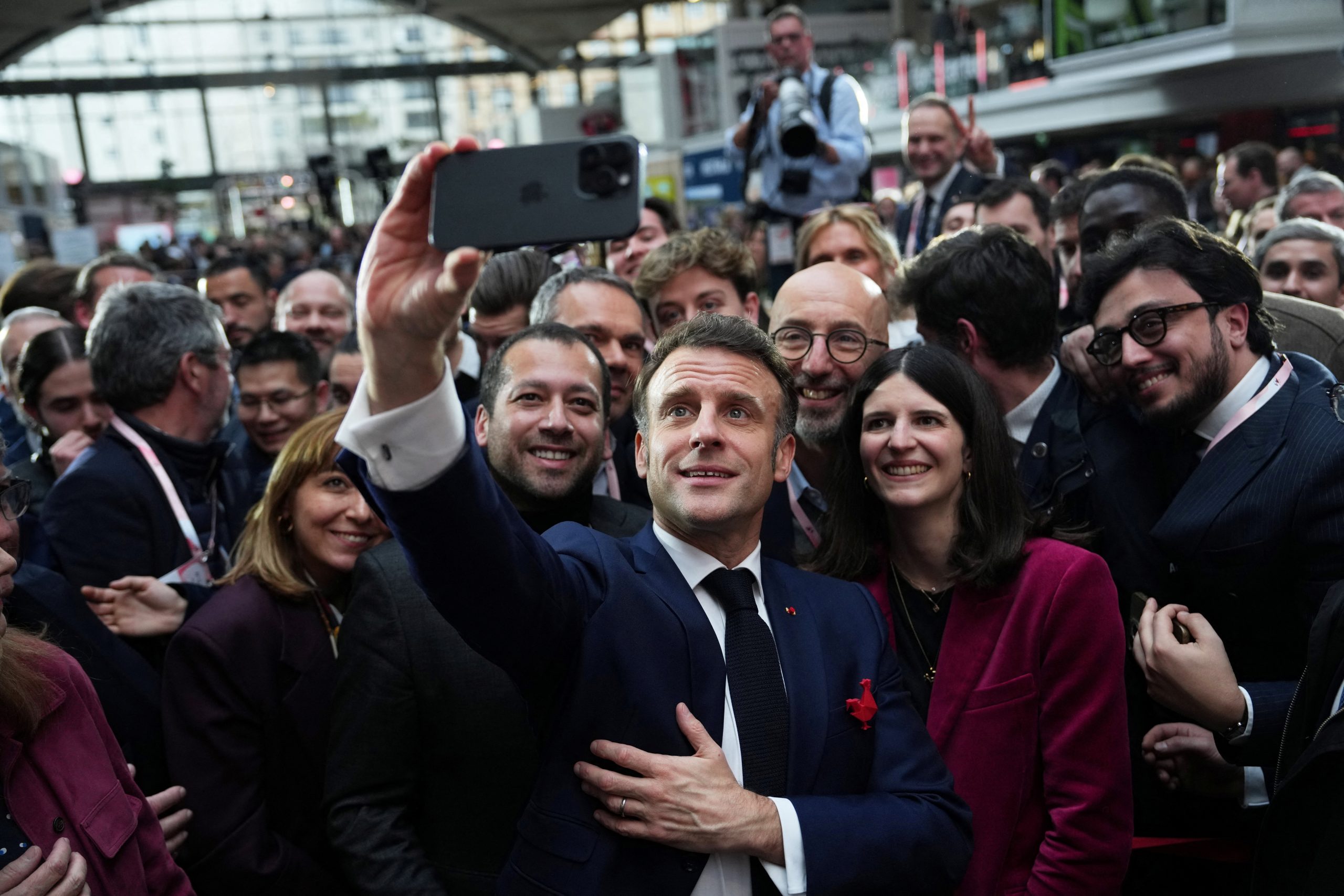Analysis: AI Summit emphasizes innovation and competition over trust and safety
Doubling down on competition and economic growth marks a significant change in AI policymaking that previously focused on safety.
Analysis: AI Summit emphasizes innovation and competition over trust and safety

Banner: French President Emmanuel Macron takes a selfie with attendees at the Artificial Intelligence Action Summit in Paris, France, February 11, 2025. (Source: Aurelien Morissard/pool via Reuters)
When the United Kingdom gathered global leaders outside of London in late 2023 to talk about artificial intelligence, the key focus was safety. Fast forward 18 months, and the latest global AI Summit — held in Paris on Feb 10-11, 2025 — has shifted its attention, almost exclusively, to competition.
That includes growing geopolitical tensions between the United States and the European Union on how the emerging technology should be policed. It includes a multi-billion euro announcement from Brussels announced on Feb 11 to jumpstart Europe’s position within the AI industry worldwide. It includes discussions from policymakers from around the world in Paris this week about how the technology can jumpstart countries’ sluggish economies.
Policy discussions around safety, inclusion and sustainability are still part of these conversations — and were baked into France’s AI Action Summit’s final communiqué, which was not signed by the United States and the UK.
But in the 18 months since these global AI summit began at Bletchley Park in the UK, lawmakers and policymakers have fundamentally altered their perspective on how policy should be harnessed around AI. Attention on safety, including long-term fears the emerging technology eventually destroying humanity, has given way to short-term needs around galvanizing AI for economic gain.
The shift comes as politicians worldwide are reassessing greater checks on the technology. The newly installed Donald Trump administration rescinded a White House executive order from the previous Joe Biden administration that had tried to push greater safety checks on AI. In its place, Trump announced his own executive order to “enhance America’s leadership.”
In a speech in front of global leaders here in Paris, US Vice President JD Vance explained, “The United States of America is the leader in AI, and our administration plans to keep it that way.”
Until recently, the European Union was viewed as the gold standard for AI rulemaking, including the 27 country’s bloc’s newly created Artificial Intelligence Act. The comprehensive rulebook comes into full force by late 2026 and bans specific “high-risk” uses for artificial intelligence. It also requires companies to conduct lengthy risk assessments and audits before releasing advanced AI models to the public.
Yet during France’s AI Action Summit, EU leaders made it clear that competition — and not safety — was now their major focus. Emmanuel Macron, the French president, told an audience in Paris that Europe would “simplify” its regulatory approach, adding: “it’s very clear we have to resynchronize with the rest of the world.”
Separately, Ursula von der Leyen, the recently installed president of the European Commission, announced €50 billion in public funding for AI-linked digital infrastructure across the bloc. Companies also said they would, collectively, invest a further €150 billion over the next five years to support Europe’s AI ambitions.
“This is where Europe can truly lead the race,” von der Leyen told global leaders. “Bringing AI to industry-specific applications and harnessing its power for productivity and people.”
This doubling down on competition — and, as an extension, economic growth — marks a significant change in AI policymaking that had, until recently, focused almost exclusively on safety.
Companies, regulators and civil society groups continue to invest in ways to make these complex systems safer, including efforts to unpick how so-called large language models are trained via people’s personal information.
But with new leadership installed in both Washington and Brussels — and other countries’ leaders, including in China, squarely focused on harnessing AI for domestic growth — the policymaking world around AI has materially changed.
AI safety will continue to play a role.
But in the current tense geopolitical landscape where trade and tech policy have become intertwined with country’s wider national and economic interests, France’s AI Action Summit made clear that competition was now the North Star for how lawmakers worldwide now viewed the emerging technology.
Cite this post:
Mark Scott, “Analysis: AI Summit emphasizes innovation and competition over trust and safety,” Digital Forensic Research Lab (DFRLab), February 11, 2025, https://dfrlab.org/2025/02/11/ai-summit-analysis-innovation.

